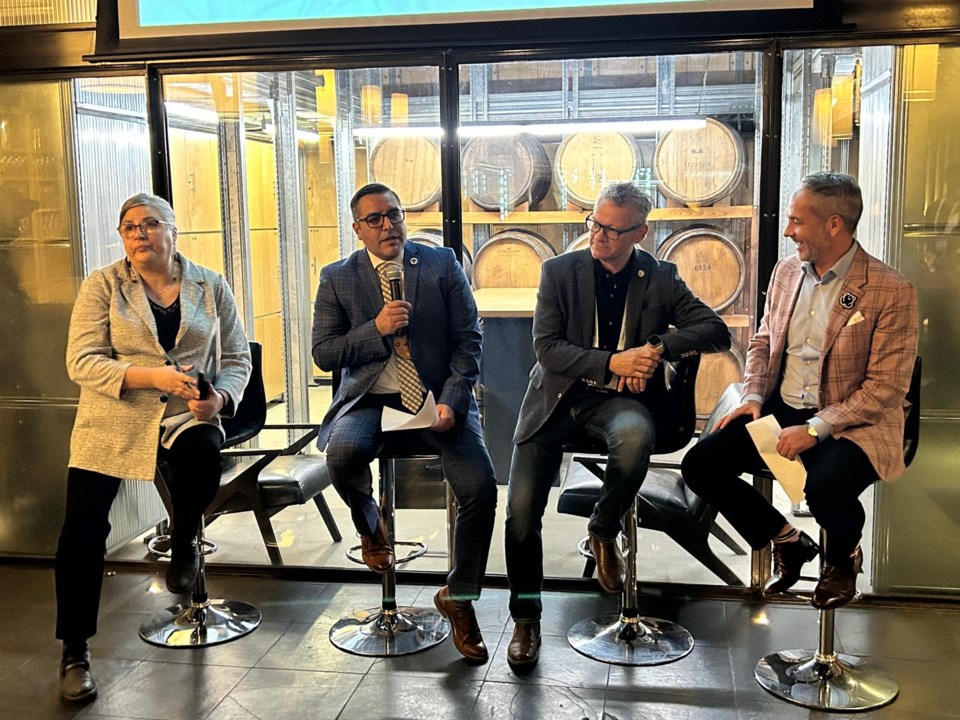Ontario First Nations are pushing for greater access to provincial data collected about their communities.
They’re interested in more autonomy over their communities’ health, education and social services statistics, as well as greater control over who can access the data and how they can use it.
The Progressive Conservative government, for its part, is willing to negotiate a new "digital sovereignty" framework with First Nations by participating in a new First Nations Data Table created by the Chiefs of Ontario (COO).
"I’m grateful for the chance to work closely with First Nations in Ontario on such an important initiative,” said Premier Doug Ford in a statement released by COO — which was not accompanied by a government press release.
“By working together, we can ensure data is collected and used in a manner that recognizes and responds to the needs of First Nations people, and supports First Nations and Ontario’s decision-making process.”
Indigenous Affairs Minister Greg Rickford added that the province is "committed to ensuring that government data collection, access and use respects and benefits First Nations people and communities.”
The data table had its first meeting on Nov. 4. What First Nations' digital sovereignty would look like in practice is still far from clear.
Chief Shelly Moore-Frappier of Temagami First Nation, chair of the data table, told The Trillium the details will have to be worked out in negotiations that are expected to take some time.
"It's really the beginning of putting this all together and what is this going to be looking like," she explained.
"It's about the right to control, to govern, as a benefit from our own data, which is something that you know has been used against us, historically."
Part of what Ontario First Nations are seeking is easier access to government-held data about their communities so that their governments can use it more effectively when making decisions.
"Health, education, social services, those are the primary motivators ... because that's where a lot of our data is held," the chief said. "This is about us making informed decisions and not having to beg for our own data."
Besides accessing the data themselves, there is also the potentially thorny issue of who else can access government-held data about First Nations and what it can be used for.
Moore-Frappier argued that government-held data about First Nation communities have too often been used to undermine their communities' interests, treaty or Aboriginal rights, and promote negative "narratives" about them.
First Nations, she said, want to have a "seat at the table" when the government decides to hand over data about their communities to researchers, to prevent "malicious" projects from going ahead.
She pointed to the Métis Nation of Ontario's (MNO) use of colonial-era government records to back up its claims to Aboriginal rights in parts of northwestern Ontario as an example. The result was a years-long conflict between the MNO and First Nations in the province.
"It's not about denying data to researchers ... it's about consent," Moore-Frappier said. "We want a way forward that has to be principled and has some levels of control (over) what we can do with (the data)."
The chief notes that sensitive commercial information is often redacted from released government records at the request of third parties.
The relationship between the COO and the PC government became quite strained under the former Ontario regional chief Glen Hare after he publicly called on then-municipal affairs minister Steve Clark to resign over his role in the Greenbelt scandal.
Hare was later replaced by current Ontario Regional Chief Abram Benedict who promised a more strategically-minded relationship with the province.
Moore-Frappier said one of the first issues facing the data table negotiations is rebuilding the relationship between both sides.
"We need to move at the speed of trust. It's about rebuilding that relationship and rebuilding that trust," she said.




.png;w=120;h=80;mode=crop)